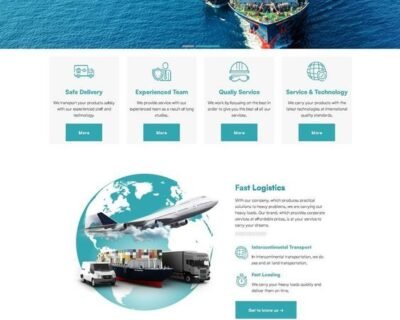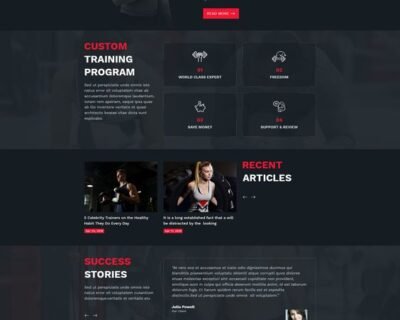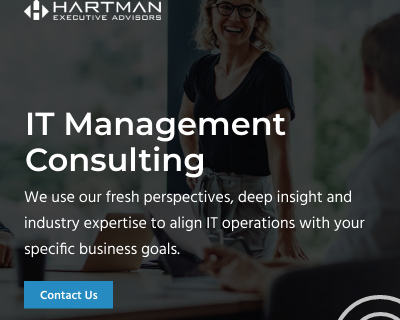The AI Advantage: Harnessing the Power of Intelligent Systems for Development
The technological landscape is experiencing a profound transformation as artificial intelligence reshapes how businesses operate and innovate. Organizations across industries are discovering that partnering with an AI development company isn’t just about staying current—it’s about gaining a decisive edge in an increasingly competitive market. Understanding how to effectively harness this technology has become crucial for sustained success.
Transforming Business Through Intelligent Systems
The impact of AI extends far beyond automation. Modern AI systems demonstrate remarkable capabilities in pattern recognition, decision-making, and problem-solving. Take the case of Midwest Manufacturing, where implementing AI-driven quality control reduced defects by 45% and increased production efficiency by 30%. Such tangible results demonstrate why companies are increasingly viewing AI as a strategic necessity.
Strategic Implementation Matters
Success in AI implementation requires more than cutting-edge technology. Organizations need a comprehensive approach that considers:
First, businesses must clearly identify specific challenges that AI can address. Rather than implementing AI for its own sake, successful organizations focus on solving real business problems. This targeted approach leads to measurable improvements and clearer return on investment.
Second, data readiness plays a crucial role. Companies often underestimate the importance of data quality and accessibility. Working with an experienced AI development company
helps organizations prepare their data infrastructure effectively, ensuring that AI systems have the foundation they need to deliver accurate results.
Building Effective AI Solutions
The Development Process
Creating effective AI solutions involves several key phases:
Initial assessment forms the cornerstone of successful implementation. During this phase, organizations work with their AI development partner to understand current capabilities, identify opportunities, and create a roadmap for success. This careful planning helps avoid common pitfalls and ensures resources are used effectively.
Development and testing follow, with continuous refinement based on real-world feedback. This iterative approach allows organizations to adjust their solutions as they gain insights from actual usage. The best AI development companies maintain close communication throughout this process, ensuring the final solution aligns with business objectives.
Integration and Adoption
Successful AI implementation requires careful attention to integration with existing systems and processes. Organizations must consider:
Technical integration needs careful planning to ensure new AI systems work seamlessly with existing infrastructure. This includes addressing data flow, security requirements, and performance optimization. Many organizations find that working with an experienced AI development company significantly smooths this process.
User adoption requires equal attention. Even the most sophisticated AI solution fails if users don’t embrace it. Successful implementations include comprehensive training programs and clear communication about how the new systems benefit users in their daily work.
Maximizing Return on AI Investment
Measuring Success
Organizations need clear metrics to evaluate their AI implementations. Effective measurement frameworks typically include:
Quantitative metrics track specific improvements in efficiency, accuracy, and cost reduction. These numbers provide concrete evidence of AI’s impact on business operations. For example, a customer service AI implementation might track response times, resolution rates, and customer satisfaction scores.
Qualitative assessments capture improvements in areas like decision-making quality and user satisfaction. These measures, while less concrete, often reveal important benefits that pure numbers miss.
Scaling for Growth
As organizations see success with initial AI implementations, scaling becomes important. Successful scaling strategies include:
Starting with focused projects that deliver quick wins helps build momentum and support for broader implementation. Organizations can then expand successful solutions to other areas or develop new applications based on learned best practices.
Maintaining flexibility in system architecture ensures AI solutions can grow with the organization. This might mean choosing cloud-based solutions or building modular systems that can easily incorporate new capabilities.
Future-Proofing AI Investments
Emerging Trends
The AI landscape continues evolving rapidly. Organizations must stay informed about trends that could impact their implementations:
Edge computing brings AI processing closer to data sources, enabling faster response times and better privacy protection. This trend particularly impacts applications requiring real-time decisions or handling sensitive data.
Explainable AI addresses growing demands for transparency in AI decision-making. Organizations increasingly need AI systems that can explain their reasoning in human-understandable terms.
Sustainable Development
Creating sustainable AI solutions requires attention to several key factors:
Long-term maintainability depends on choosing the right technologies and development approaches. Working with an experienced AI development company helps ensure solutions remain viable as technology evolves.
Regular updates and refinements keep systems effective as business needs and technologies change. This ongoing maintenance ensures organizations continue receiving value from their AI investments.
Practical Applications Across Industries
Manufacturing and Operations
AI transforms manufacturing through:
- Predictive maintenance reducing equipment downtime
- Quality control automation improving product consistency
- Supply chain optimization enhancing efficiency
- Production scheduling maximizing resource utilization
Customer Service and Support
Organizations leverage AI to enhance customer experiences through:
- Intelligent chatbots providing 24/7 support
- Predictive analytics anticipating customer needs
- Automated ticket routing improving response times
- Sentiment analysis enabling better customer understanding
Conclusion
The AI advantage comes not just from implementing technology, but from choosing the right solutions and partners for your specific needs. Organizations that work with experienced AI development companies position themselves to realize significant benefits from their AI investments.
Success requires careful planning, strong partnerships, and ongoing commitment to optimization and improvement. As AI technology continues evolving, organizations that approach implementation strategically while maintaining flexibility will be best positioned to leverage new opportunities and maintain competitive advantage.
The future belongs to organizations that can effectively harness AI’s potential while maintaining focus on real business value. By combining technical excellence with strategic vision and strong partnerships, organizations can unlock transformative potential and drive sustainable growth through intelligent systems.






















Leave a Comment